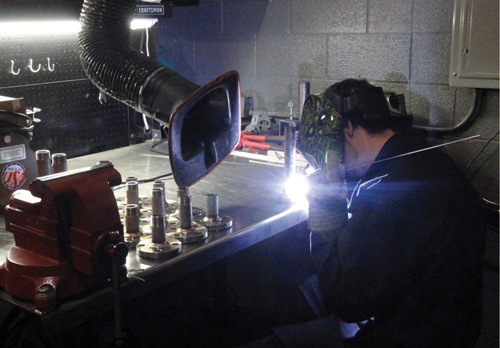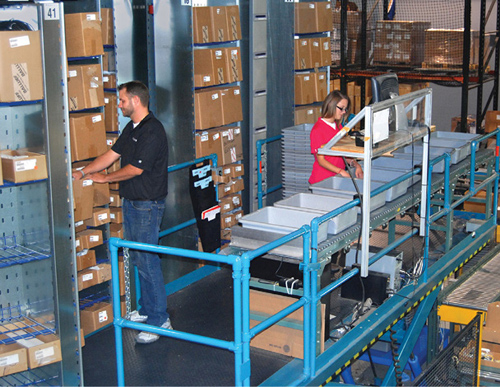
Photo courtesy of RHM Flodraulic Group
In the past, traditional distribution was simply that as a provider of a transaction—buying and reselling components. But in recent years, distributors have become an extension of an OEM’s engineering department, said Bill Tulloch, executive VP of Flodraulic Group.
“What they need help with are solutions,” he said. “Particularly what we’re seeing in the industrial OEM marketplace, customers don’t have resident staff engineers that are experts in fluid power technologies anymore. A lot of their engineers are mechanical or electrical, and they have a void in fluid power expertise.”
To that end, a successful distributor needs to understand its customers’ equipment and machinery and how that machinery functions in a greater application picture. So rather than just selling to a manufacturer of an excavator, for example, the distributor must fully understand who is going to buy that equipment and how they are going to use it. This means a full understanding of not just fluid power but mechanical and electrical engineering and even down to ergonomics.
“Given all that, we now need to come to them with the full solution. More often than not, nowadays, that solution isn’t just fluid power,” Tulloch said. “A good industrial distributor now has to integrate multiple technologies. He may be bringing to that customer pneumatics and hydraulics of course, but you’re bringing mechanical, you’re bringing electrical and controls. You have to understand PLCs and how that will control his equipment.”

That being said, Tulloch stresses that there is room for everyone in the marketplace, whether it’s a small mom-and-pop business doing traditional distribution or large fluid power distributors that are more now system integrators.
The Internet, too, has changed the way a lot of distributors do business. For larger engineering-type distributors, it has allowed them to expand their product offerings by easily finding components to go into a complete system design. But, cautions Tulloch, “The engineering expertise that’s required can’t be replaced on the Internet.”
For smaller distributors, it is necessary to have a good online presence, because users now have many more choices and often, underpriced choices. Having a good website and competitive pricing will keep customers returning to your company.
With some of these changes, Tulloch said that fluid power distributors have lost some market share to electrical and mechanical technologies, particularly in industrial applications like machine tools, plastics machinery and even small presses.
“The challenge to retain that and win some back, which we can do, is going to be keyed in on leveraging our existing capabilities, and that’s the power-to-size advantage that we have, and integrating the controls and the electronics,” he said. “If we can do that, we have some compelling advantages. There’s no question we have a strong, strong challenge ahead of us going forward. The biggest thing is a strong understanding of electrical controls integration to leverage the finesse, the brains of electrical into the brute strength of the hydraulics side of the business.”
This is an excerpt from a Technology Tuesdays Podcast with Bill Tulloch and Paul J. Heney, Editorial Director. Listen to the entire podcast here now.

Leave a Reply